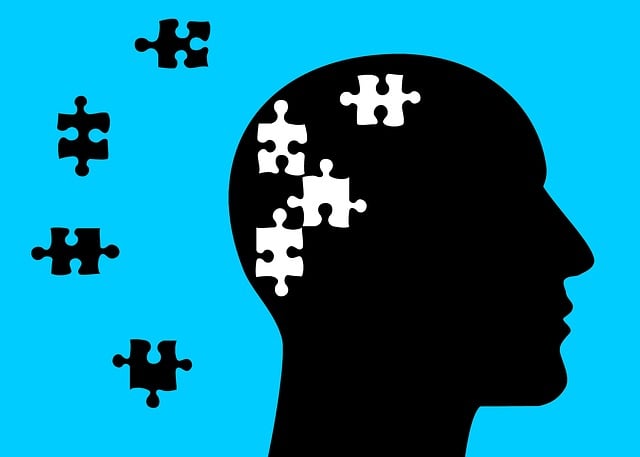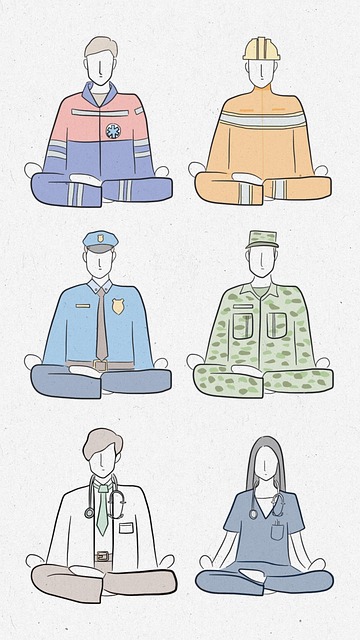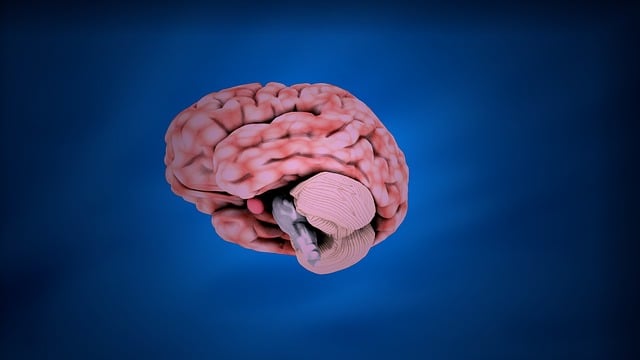Greenwood Village Crisis Counseling Therapy tackles the stigma surrounding mental health through various initiatives. They offer personalized therapy, stress management workshops, and educational programs to encourage open conversations, self-care, and understanding. Peer support groups facilitated by their professionals provide a safe space for connection and shared experiences. By advocating for progressive policies and challenging media stereotypes, they foster an inclusive community where individuals feel comfortable seeking mental health support without fear of judgment.
In Greenwood Village, mental illness stigma reduction efforts have taken center stage as a crucial component of enhancing community well-being. This article delves into the multifaceted strategies that are reshaping the narrative around mental health. From understanding stigma’s profound impact on seekers in Greenwood Village to initiatives like the renowned Greenwood Village Crisis Counseling Therapy offering safe spaces for conversation, each section explores innovative approaches. Educational programs and peer support groups further underscore the community’s commitment to fostering empathy, while policy changes and media representation advocate for progressive views on mental health.
- Understanding Stigma: Its Impact on Mental Health Seekers in Greenwood Village
- Greenwood Village Crisis Counseling Therapy: A Safe Space for Conversation
- Educational Initiatives: Breaking Down Misconceptions About Mental Illness
- Peer Support Groups: Fostering Community and Empathy in Greenwood Village
- Policy Changes and Media Representation: Advancing Progressive Views on Mental Health
Understanding Stigma: Its Impact on Mental Health Seekers in Greenwood Village

In Greenwood Village, understanding stigma is a critical step toward reducing its detrimental impact on individuals seeking mental health support. Stigma often acts as a barrier, discouraging people from reaching out for help due to fear of judgment or societal rejection. This can significantly delay access to necessary crisis counseling and therapy, exacerbating existing mental health challenges. Many in Greenwood Village struggle in silence, their conditions worsening without proper intervention, all because they worry about how others might perceive them.
Reducing stigma involves fostering a culture of understanding and empathy where mental illness is recognized as a legitimate health concern, no different from physical ailments. Encouraging open conversations about mental health, promoting self-care routine development for better mental health, and emphasizing positive thinking and mood management can all contribute to breaking down these barriers. By integrating these strategies, Greenwood Village Crisis Counseling Therapy can effectively support individuals, helping them manage their conditions and lead fulfilling lives.
Greenwood Village Crisis Counseling Therapy: A Safe Space for Conversation

Greenwood Village Crisis Counseling Therapy offers a safe space for individuals to engage in open conversations about mental health challenges. This supportive environment encourages vulnerability and fosters meaningful connections, breaking down barriers often associated with seeking help. Through personalized therapy sessions, clients can explore effective communication strategies to express their experiences and emotions, promoting better understanding both within themselves and with others.
In addition to individual counseling, the organization conducts Stress Management Workshops designed to equip participants with practical tools for coping with life’s demands. These workshops not only enhance emotional resilience but also empower individuals to cultivate inner strength, enabling them to navigate mental health journeys with renewed confidence and self-compassion.
Educational Initiatives: Breaking Down Misconceptions About Mental Illness

Educational initiatives play a pivotal role in reducing the stigma surrounding mental illness by aiming to break down misconceptions prevalent in society. Greenwood Village Crisis Counseling Therapy has been at the forefront of such efforts, focusing on providing accessible and accurate information to dispel myths that often hinder individuals from seeking help. These programs target schools, communities, and workplaces, offering interactive workshops and seminars that highlight the realities of mental health challenges. By fostering open conversations, they encourage empathy and understanding, challenging outdated stereotypes associated with conditions like depression, anxiety, and bipolar disorder.
Through these educational campaigns, the importance of early intervention and ongoing support is emphasized. Topics such as stress management and coping strategies are integral to the curriculum, empowering individuals to recognize symptoms in themselves or others and initiate conversations without fear of judgment. The ultimate goal is to create a more inclusive environment where mental illness is treated with the same compassion and understanding as physical health issues, encouraging those in need to reach out for assistance without hesitation.
Peer Support Groups: Fostering Community and Empathy in Greenwood Village

In Greenwood Village, Peer Support Groups have emerged as a powerful tool in the ongoing battle against mental illness stigma. These groups provide a safe and supportive environment where individuals facing similar challenges can connect, share their experiences, and offer encouragement. Participants often find solace in realizing they are not alone in their struggles, fostering a sense of community that is essential for recovery. By participating in these peer-led discussions, members develop empathy and understanding, breaking down barriers and promoting mental health awareness within the village itself.
Greenwood Village Crisis Counseling Therapy plays a pivotal role in facilitating these groups by ensuring access to trained facilitators and creating spaces where individuals can openly discuss their mental health journeys. In tandem with Public Awareness Campaigns Development and Mental Health Policy Analysis and Advocacy efforts, these peer support initiatives contribute significantly to enhancing cultural sensitivity in mental healthcare practice. This holistic approach ensures that the unique needs of diverse communities are met, fostering an inclusive environment that supports open conversations about mental illness and promotes overall well-being.
Policy Changes and Media Representation: Advancing Progressive Views on Mental Health

Mental health policies and media portrayal play a pivotal role in shaping public perception, and both offer significant opportunities for stigma reduction. Initiatives like those provided by Greenwood Village Crisis Counseling Therapy have been instrumental in advocating for more progressive views on mental health. By highlighting success stories and emphasizing the effectiveness of therapy and counseling, these efforts challenge stereotypes often associated with mental illness.
Media representation is crucial here; portraying individuals with mental health conditions as multifaceted and capable contributes to a more nuanced understanding. This shift encourages empathy and promotes the idea that seeking help for emotional intelligence and stress management is not a sign of weakness but rather a proactive step towards emotional healing processes. Such advancements create an environment where individuals feel more comfortable discussing their struggles openly, fostering a community that supports and understands mental health concerns.
In Greenwood Village, efforts to reduce mental illness stigma have taken multifaceted approaches. From creating safe spaces like the Greenwood Village Crisis Counseling Therapy to educational initiatives that dispel misconceptions, these strategies are fostering a more empathetic community. Peer support groups further strengthen this progress by connecting individuals and promoting understanding. Policy changes and positive media representation are also pivotal in advancing progressive views on mental health, ensuring that those seeking help face less prejudice and more support.














